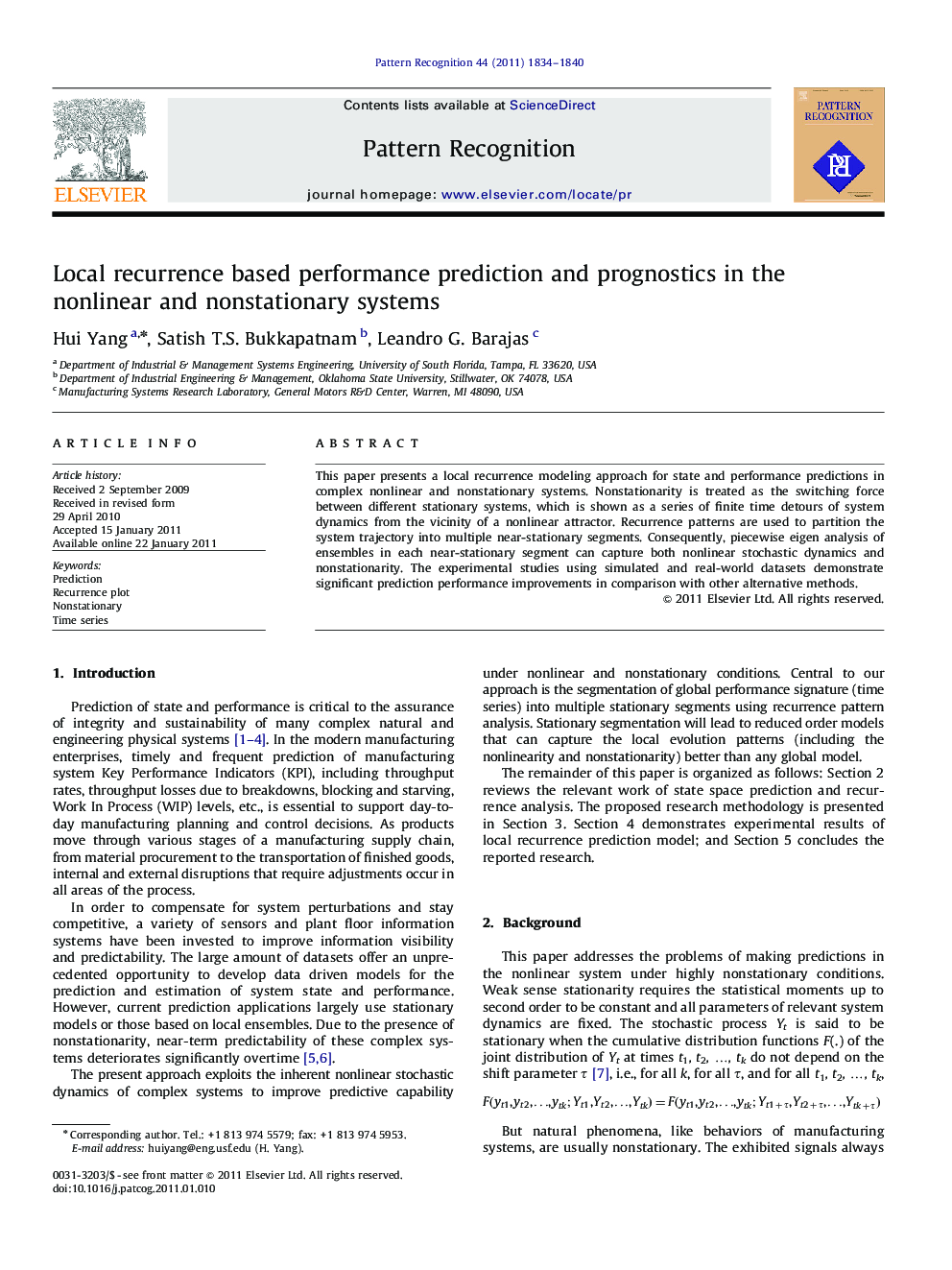| Article ID | Journal | Published Year | Pages | File Type |
|---|---|---|---|---|
| 533552 | Pattern Recognition | 2011 | 7 Pages |
This paper presents a local recurrence modeling approach for state and performance predictions in complex nonlinear and nonstationary systems. Nonstationarity is treated as the switching force between different stationary systems, which is shown as a series of finite time detours of system dynamics from the vicinity of a nonlinear attractor. Recurrence patterns are used to partition the system trajectory into multiple near-stationary segments. Consequently, piecewise eigen analysis of ensembles in each near-stationary segment can capture both nonlinear stochastic dynamics and nonstationarity. The experimental studies using simulated and real-world datasets demonstrate significant prediction performance improvements in comparison with other alternative methods.
Research highlights► We make predictions in the nonlinear system under highly nonstationary conditions. ► Recurrence patterns are used to partition state space into near-stationary segments. ► We utilize local recurrence pattern recognition approach for prediction purposes. ► Local recurrence model captures both nonlinear dynamics and nonstationarity. ► Experiments show the superiority of local recurrence model over other alternatives.
